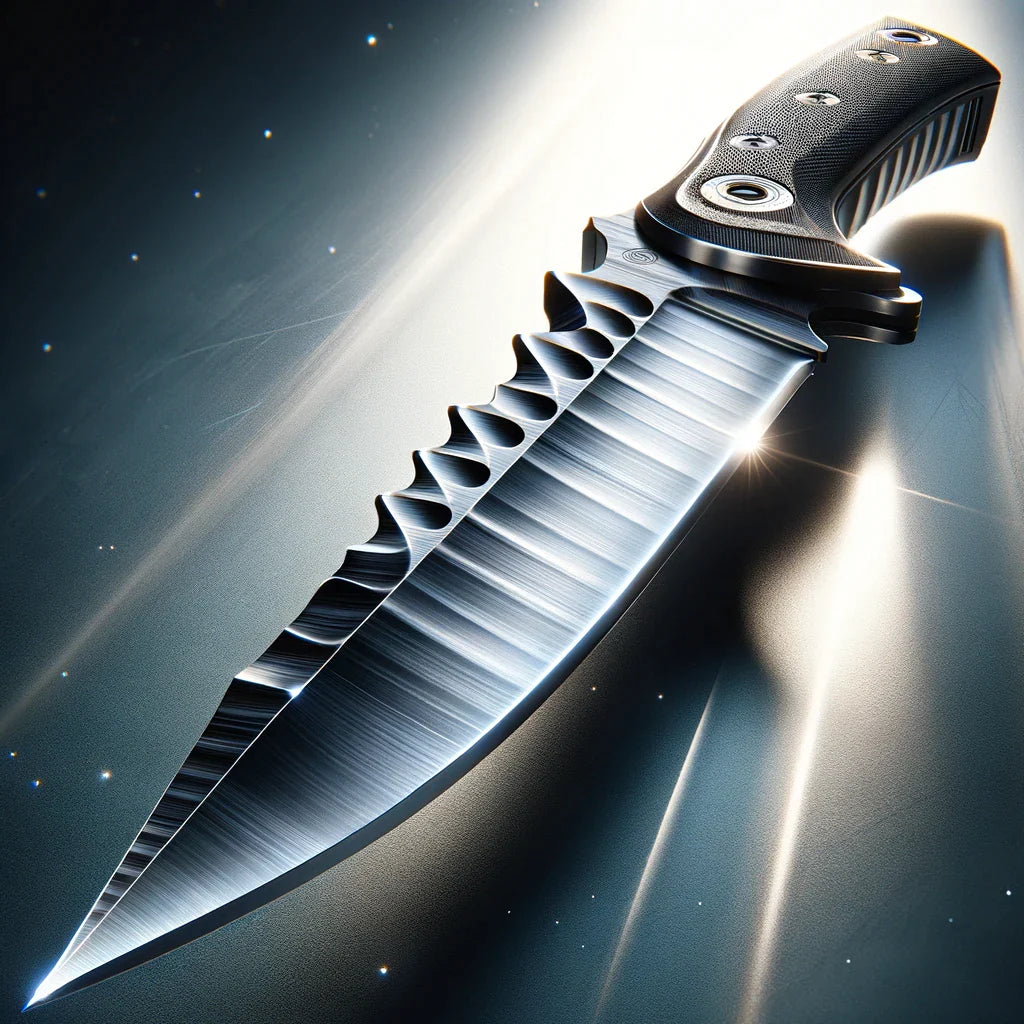The World's Sharpest Knife: Cutting Through the Limits
In every culture and historical period, knives have not only been an essential tool and weapon but also a symbol of power, artistry, and the pinnacle of craftsmanship. From ancient times to the present, the quest to create the world’s sharpest knife—a tool so perfect that its edge transcends the boundaries of our understanding—has been a relentless pursuit. In this article, we will explore what makes a knife incredibly sharp, why Japanese swords and tanto knives are legendary for their sharpness, what history and mythology considered the sharpest sword, and finally, the sharpest knife of today.
Types of Knives and the Secrets to Their Sharpness
The world’s sharpest knives are not the result of chance but the culmination of years of development, experimenting with materials, and perfecting sharpening techniques. Key factors include:
Sharpening style: A double-edged knife (sharpened on both sides) offers a symmetric edge ideal for precise cutting, while a single-edged knife provides extreme sharpness on one side, often seen in Japanese knives.
Materials used: High-carbon steel has traditionally been prized for its ability to be honed into a very sharp edge and maintain this sharpness over time. Damascus steel, known for its distinctive patterns, combines hard and soft steels, leading to an edge that is resistant to breaking while being extremely sharp.
Japanese Swords and Tanto Knives: Masters of Sharpness
Japanese katanas and tanto knives are recognized for their incredible sharpness and perfection. The key to their making is a combination of special forging and sharpening techniques, utilizing multi-layered steel. This process, known as "folded steel," creates a strong but flexible edge that can achieve microscopic levels of sharpness.
The Sharpest Sword in History and Mythology
In mythology and history, stories of swords with supernatural sharpness abound. Excalibur, King Arthur's sword, or the Japanese Kusanagi-no-Tsurugi are often cited as symbols of incredible power and sharpness. These legends reflect the human fascination and desire for a perfect tool.
The Sharpest Knife Today
Today, technology and material science have pushed the boundaries of what's possible in terms of knife sharpness. An example of the sharpest knife currently could be one made from ultra-hard materials like ceramics or even diamond. These materials can be processed to atom-thin sharpness, leading to an edge that can cut at almost the molecular level. Yet, even as modern technology offers incredible sharpness, the tradition and craftsmanship of ancient masters remain equally valued.
Another innovation that provides extreme cutting properties are ultrasonic knives. More here:
Conclusion
The search for the sharpest knife is an endless journey where history, craft, and science converge. From ancient legendary swords to ultramodern materials, the human desire for perfection in sharpness is a constant inspiration for innovation and the art of blacksmithing. In this exploration of sharpness, we uncover not just the technical aspects but also the deep cultural and historical significance that knives and swords hold for humanity.

